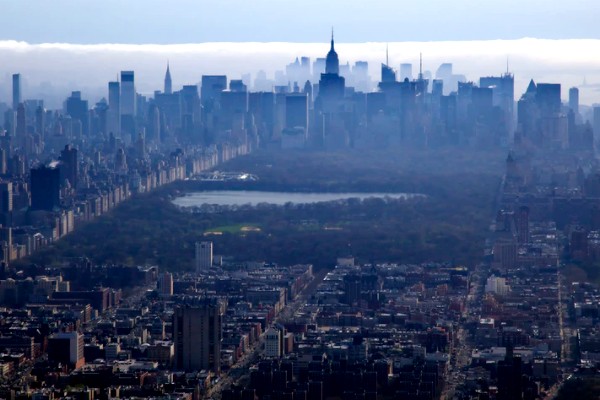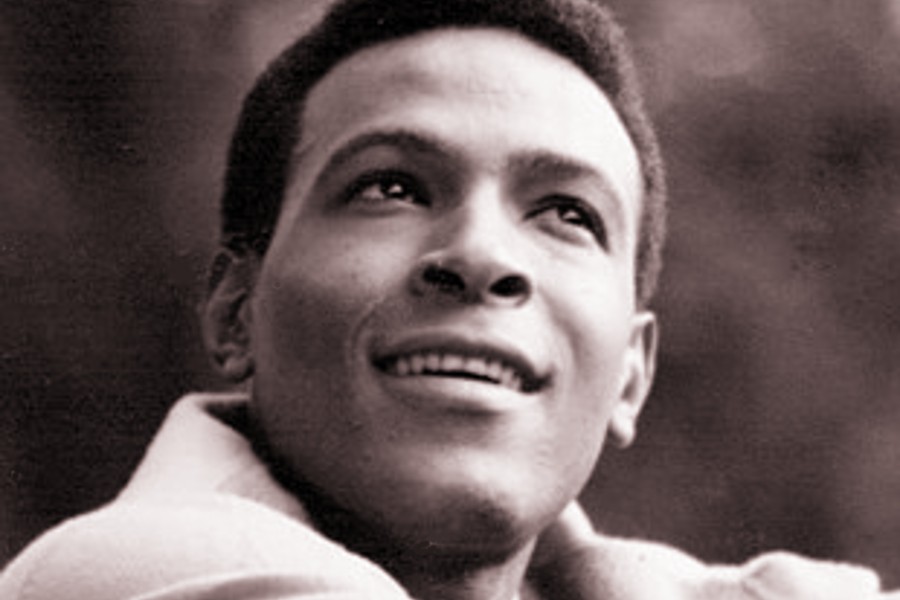 Today, Mayor de Blasio released the State of Climate Knowledge 2021, a new report that outlines New York City’s climate research priorities and identifies knowledge gaps for future study.
Today, Mayor de Blasio released the State of Climate Knowledge 2021, a new report that outlines New York City’s climate research priorities and identifies knowledge gaps for future study.
This report, which will be issued on an annual basis by the Mayor’s Office of Climate Resiliency, communicates New York City’s research needs to external partners, including academic scientists, federal researchers, philanthropic foundations, and community organizations.
This in turn will catalyze new and creative partnerships to develop credible and actionable research products that address the city’s most pressing climate challenges.
“Sound science has always been at the foundation of New York City’s actions to address the climate crisis. However, we still have much more to learn about how global warming is impacting New Yorkers and their communities,” said Mayor Bill de Blasio. “This research agenda will catalyze exciting new partnerships with the research community and will help us create a safer, more equitable future for all.”
With a cross-cutting focus on equity and climate justice, the report identifies four key areas where additional research is most needed:
- How climate hazards will impact the daily lives of New Yorkers and which neighborhoods and demographics are most vulnerable;
- How to build using green and resilient design practices to lower carbon, reduce vulnerability, and improve the health of New Yorkers;
- How decision-making frameworks and cost-benefit analyses can better include equity, social factors, and non-monetary considerations; and
- How different climate communications increase perception and awareness of climate risk leading to individual and collective action.
“Community engagement and collaboration are at the heart of this report, which outlines New York City’s first-ever climate research agenda,” said Jainey Bavishi, Director of the Mayor’s Office of Climate Resiliency. “We worked extensively with communities, agencies, and scientists to identify knowledge gaps and translate them into opportunities for collaborative research and innovation. This isn’t just the climate research that New York City needs; it is the climate research that New York City deserves.”
The 2021 State of Climate Knowledge was developed through a collaborative engagement process that included dozens of community-based organizations and nonprofits, representing communities in each of the five boroughs. City agencies and authorities were also consulted throughout the process.
Participants came from a wide range of backgrounds including conservation of nature, parks and recreation, environmental management, environmental justice, construction and housing, urban planning, health, disaster management, transportation, and law.
In addition to identifying areas of greatest need for scientific inquiry, the 2021 State of Climate Knowledge also makes recommendations for expanding and deepening future engagement related to climate science and risk communications.
This report will build on the City’s strong existing partnerships with the research community, including its close collaboration with the New York City Panel on Climate Change (NPCC), an independent panel of climate experts appointed by the Mayor. Since the NPCC’s formation in 2008, they have developed highly accurate and detailed climate projections specific to the New York City region and have issued three Assessment Reports. NPCC3, their most recent assessment, was released in Mach 2019.
“The co-chairs of the NPCC are pleased to see this new initiative emerge from the Mayor’s Office of Climate Resiliency. It represents a commitment to community engagement and co-production of knowledge that is a very important contribution to our shared work around resilience and equitable adaptation,” said Christian Braneon, NPCC4 Co-Chair and NASA’s Goddard Institute for Space Studies.
“New York’s environmental justice advocates have contributed to identifying the key areas of study that will make it easier for the city to track, understand, and develop policies that create more sustainable communities for all New Yorkers, especially the most vulnerable,” said Peggy Shepard, Chair of the New York City Environmental Justice Advisory Board.
“The Waterfront Alliance applauds the City’s development of a climate research agenda. We need indicators and research that better connect science to impacts on our daily lives and the solutions needed to address them. This a great step toward an understanding of what is needed to improve resilience in every neighborhood,” said Cortney Worrall, President and CEO of Waterfront Alliance.
“We commend the City’s efforts to identify the most pressing knowledge gaps to ensure continued progress in addressing climate mitigation and resilience. With a clear focus on the people of the City, this research agenda will help to build equity, understand individual and community impacts and build an educated and engaged constituency for collective action,” said Natalie Snider, Senior Director of Coastal Resilience at Environmental Defense Fund.
“New York City is on the front lines of the climate crisis and it is critical that we understand the local impacts of climate change—and the actions we can take to build a resilient future. A coordinated climate research agenda can help us improve residents’ lives today and for generations to come. We know parks, protected open space, and trails are key natural climate solutions; we look forward to working with the City and partners to prove that a greener New York can deliver cooler neighborhoods and flood protection while advancing climate justice to ensure all New Yorkers regardless of race or income is protected from climate hazards,” said Carter Strickland, New York Director for the Trust for Public Land.
“The Nature Conservancy commends Mayor de Blasio for leading a collaborative process to identify where further climate research is most needed. The Climate Knowledge Exchange is an exciting effort to foster inclusive conversations so that expertise from within communities can inform how the City and partner organizations can best protect all New Yorkers from rising seas, extreme heat, and frequent flooding. We look forward to continuing to support this critical work,” said Nicole Maher, The Nature Conservancy’s New York Senior Coastal Scientist.
“The Science and Resilience Institute at Jamaica Bay applauds the release of this important and timely report on the State of Climate Knowledge in New York City. We work with communities, agencies, environmental organizations, and other partners to build a foundation of knowledge that can use to increase climate resilience for communities and ecosystems around Jamaica Bay. This report will help ensure that our work stays aligned with the priorities of all our partners and that our research will lead to actions that benefit the residents of New York City,” said Dr. Brett Branco, Director of the Science and Resilience Institute at Jamaica Bay.
“Con Edison is proud to partner with the City, other stakeholders, and the scientific community to expand the knowledge base for climate research and facilitate an equitable transition. We have a proud legacy of continuous learning and building back stronger following storms and heatwaves. We are committed to science-based climate resiliency planning and look forward to continued collaboration and engagement to protect and adapt our infrastructure for the communities we serve,” said Kyle Kimball, Vice President of Government, Regional, & Community Affairs, Con Edison.
“As one of the world’s largest communications companies, AT&T recognizes that climate change is happening, that greenhouse gas emissions are contributing to it, and that transitioning to a more resource-efficient world will be a primary determinant of success in the 21st-century global economy. At AT&T, we play a role in tackling climate change. Across the world, our broadband-powered solutions are helping reduce companies’ environmental impact. We are pleased to continue our participation and provide expertise to the city’s Climate Adaptation Change Taskforce and the 2021 issue of the NYC State of Climate Knowledge Report,” said Victor DeVito, AT&T Regulatory Relations.
“NYC Office of Resiliency & Sustainability is providing important climate change information and pertinent climate data which MTA uses for its resiliency planning and implementation. MTA’s participation at NYC Mayor’s Office Climate TaskForce allows for relevant information exchange and mutual benefit on climate adaptation,” said Porie Saikia-Eapen, Director of Environmental Sustainability and Compliance, Metropolitan Transportation Authority.
“As we approach critical climate thresholds, the State of Climate Knowledge 2021 makes an important step forward for how New York City can transform itself for resilience to the climate challenges coming our way. We will need more flexible adaptation pathways for a climate future that is uncertain, and to harness both infrastructure and nature-based solutions. We must ensure that we prioritize social, ecological, and technological investments in the communities that bear the heaviest burden of multiple climate risks so that climate resiliency is anchored in climate justice.” said Timon McPhearson, member NPCC4 and Director, Urban Systems Lab, The New School.
“The MOCR’s State of Climate Knowledge 2021 is an exciting report that details an innovative project that is essential in fighting the battle with climate change. The engagement process for this project helps to identify what New Yorkers know, do not know, and want to know about climate change. Continually up-dating this information and expanding outreach will enhance our capacity to address the needs of all city residents when considering mitigation and adaptation policy,” said Peter J. Marcotullio, member NPCC4 and Director, Institute for Sustainable Cities at Hunter College.
“The NYC Climate Exchange raises important questions for our city. How might we collectively engage, set priorities, raise risk awareness and coping capacities for our various climate challenges? How might we, together, improve this place that we call home?” said Janice Barnes, member of NPCC4 and Founder of Climate Adaptation Partners.
“Ensuring that all NYC coastal communities, in particular those most vulnerable, are included in the creation of knowledge, tools and information related to climate and other coastal hazards (such as sea level rise and sunny day flooding) is essential for collaborative decision-making processes related to local planning, and enabling resilience and adaptation to climate-related impacts. New York Sea Grant is pleased to have been able to participate in the Mayor’s Office of Climate Resiliency’s Climate Knowledge Exchange collaborative process resulting in the release today of the State of Climate Knowledge 2021 report which will serve as an important guiding framework for NYC coastal resilience,“ said Dr. Rebecca L. Shuford, Director, New York Sea Grant.
“An impressive, innovative and much-needed effort to streamline engagement across key players on the climate crisis in NYC. We’re very grateful to play a part in this work,” said Nancy E. Holt, Ph.D., Science for New York.
Become a Harlem Insider!
By submitting this form, you are consenting to receive marketing emails from: Harlem World Magazine, 2521 1/2 west 42nd street, Los Angeles, CA, 90008, https://www.harlemworldmagazine.com. You can revoke your consent to receive emails at any time by using the SafeUnsubscribe® link, found at the bottom of every email. Emails are serviced by Constant Contact








